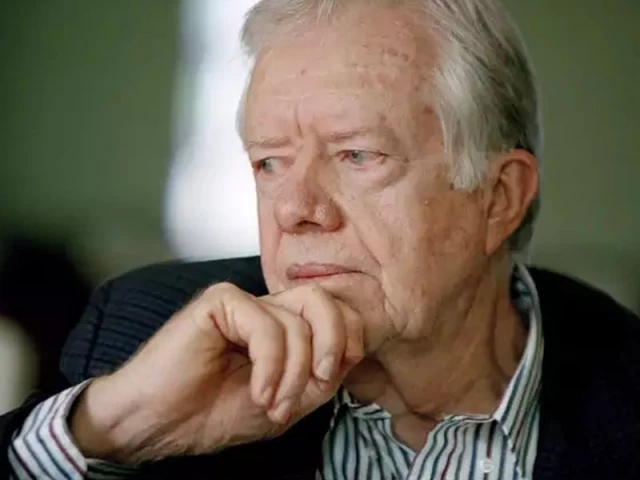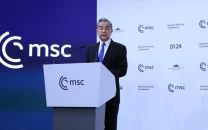Jimmy Carter - a peacemaking president amid crises
Jimmy Carter, 100, dies; Nobel laureate, ex-president known for charity, diplomacy, and Camp David.

Jimmy Carter, the former US president and Nobel peace laureate who rose from humble beginnings in rural Georgia to lead the nation, died aged 100.
Carter was known as much for his charity and diplomatic work later in life as he was for his single presidential term, which ended in 1981.
Carter died on Sunday at his home in Plains, Ga., after deciding nearly two years ago to forgo further medical care following a series of medical crises, according to two people close to the family and The Carter Center, the nonprofit he and his wife founded.
At 100, he was the longest-lived president in American history and became known as much for his post-presidential diplomacy and charitable works as for his single, economically-turbulent term in office.
Carter had a complicated history with Israel, despite the Camp David accord. Perhaps Carter's most significant achievement was negotiating the Camp David Accord, forging peace between Israel and Egypt, an agreement that has survived for nearly half a century and remains a bedrock of Middle East politics and security. But Mr. Carter had a complicated history with Israel.
While he played a neutral broker during the Camp David talks at the presidential retreat in Maryland in 1978, he grew increasingly critical of Israel after leaving office, most notably in a 2006 book: "Palestine: Peace Not Apartheid", that compared Israel's treatment of the Palestinians to South Africa's former system of racial repression.
In the book, Mr Carter argued that the debate in the United States over Israel's treatment of Palestinians had been skewed by pro-Israel lobbyists and American newspaper editorial pages that rarely offered the full picture of the situation. Israel, he wrote, was guilty of human rights abuses in Palestinian territories. But most explosive was his use of the word "apartheid" in the title.
The book generated a backlash among Israel's supporters, and he was accused of exaggerating the situation and misstating some facts.
Fourteen members of the Carter Center advisory board resigned in protest. "It seems you have turned to a world of advocacy, even malicious advocacy," the resigning advisers said in a letter to Mr. Carter. "We can no longer endorse your strident and uncompromising position."



















COMMENTS
Comments are moderated and generally will be posted if they are on-topic and not abusive.
For more information, please see our Comments FAQ